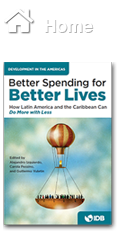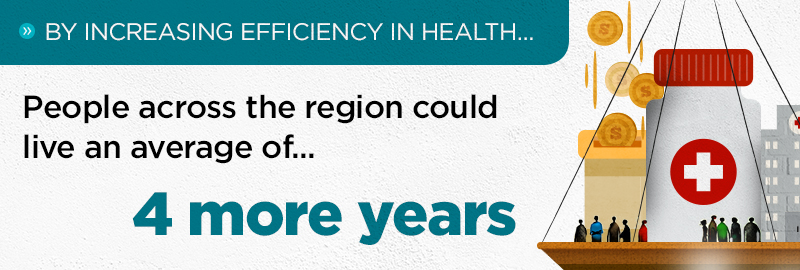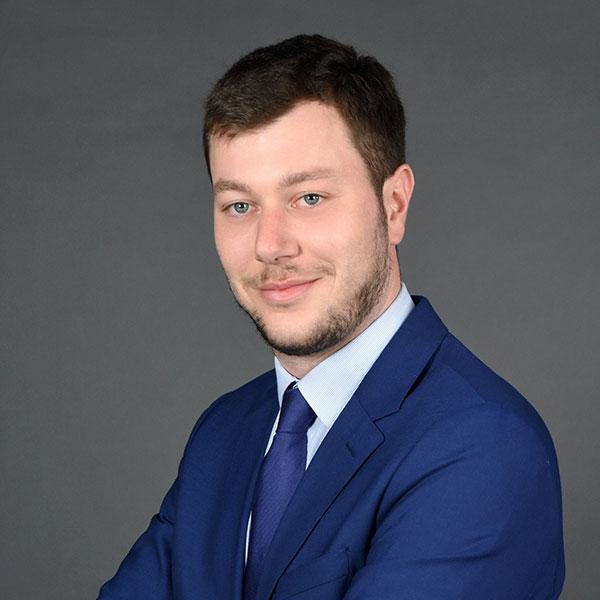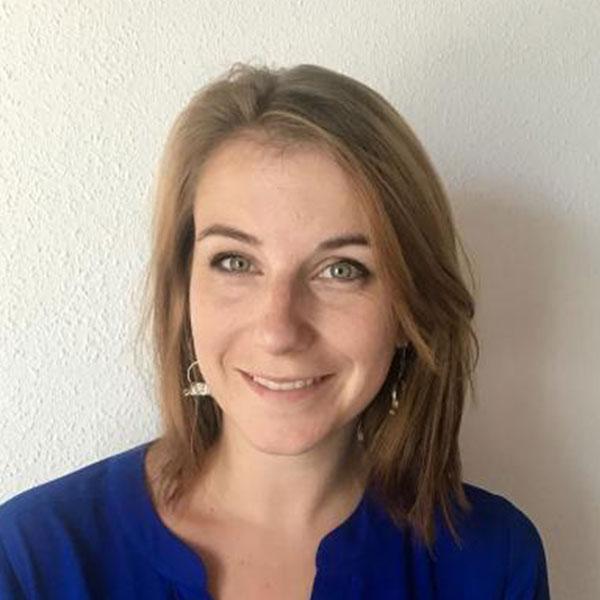Latin American and Caribbean countries vary widely in terms of spending efficiency. Chile is the only Latin American country among the top 25 percent of performers
Efficient Spending for Healthier Lives
(Chapter 8)
Health systems have been a crucial driver of progress in health and well-being in Latin America and the Caribbean. Since 2000, service improvements such as the coverage of skilled birth attendance and immunization rates testify to citizens’ expanded access to vital health services. These achievements have paid off in terms of better health outcomes, as measured by the increase in life expectancy or the decline in mortality rates for children under five years of age. Nevertheless, much is left to be done to address unmet needs and health inequities as well as to shift the focus of care toward chronic illness, which currently accounts for nearly three-fourths of deaths and years of life lost due to premature death and disability.
The case for continued investment in health is strong. Spurred by the Sustainable Development Goals (SDG) agenda, Latin American and Caribbean countries are implementing policies and programs aimed at achieving universal health coverage (UHC) —that is, ensuring that all people can obtain the services they need without suffering financial hardship (WHO, 2010). The commitment to ensure affordable access to high-quality health services for all requires that governments examine whether progress towards UHC can be met with current levels of health system investment and, if macroeconomic conditions allow, to mobilize additional resources and increase the fiscal space for health.
Yet, as presented in Chapter 1, many countries in the region anticipate further budgetary restrictions. Consequently, policy must focus on improving the efficiency of health care by investing in interventions that achieve the best health results and implementing these interventions the right way. Attaining universal health care will require not just more money for health, but more health per dollar invested.









